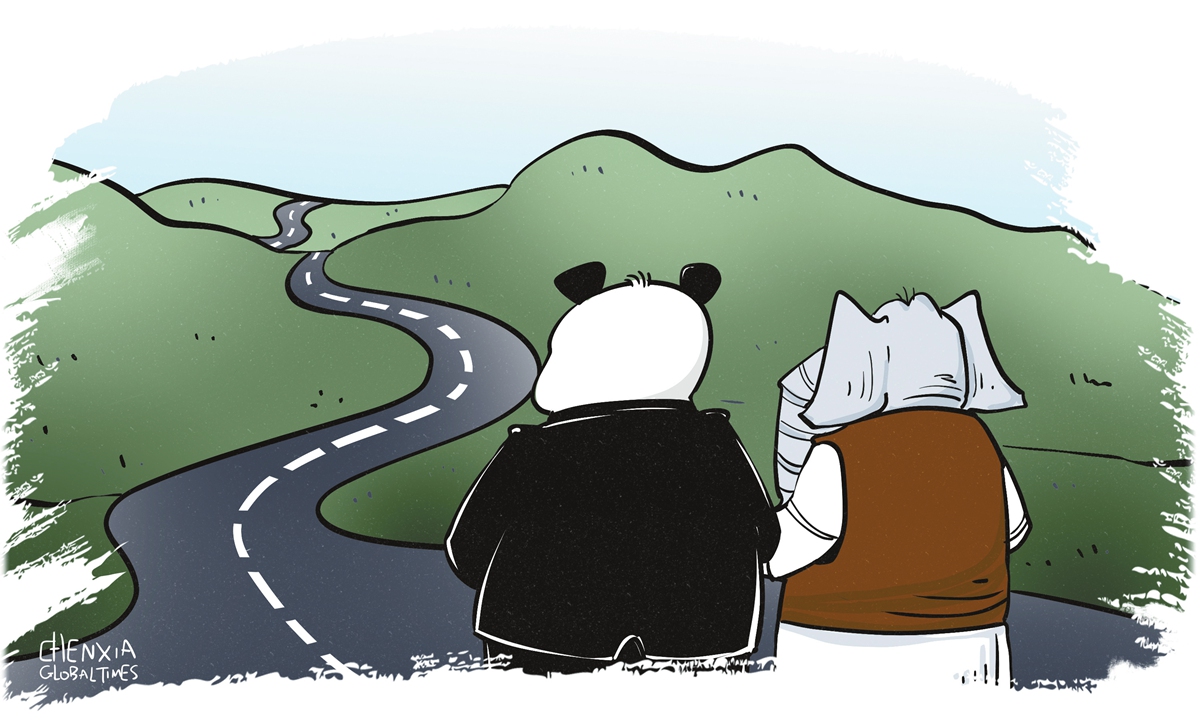
Illustration: Chen Xia/GT
According to the Indian Express on Sunday, India's Minister of External Affairs S. Jaishankar responded to a question from students by stating that it is still early for the normalization of relations between India and China. He added that rebuilding of trust and willingness to work together will naturally take time. His words came after China and India reached resolutions on issues concerning the border area on October 23.
This once again reminds us that the process of China and India promoting mutual trust is not easy, and both countries need to move forward step by step. But it is precisely because it is not easy that the significance of the resolutions is revealed.
Officials and media outlets from both sides have consistently characterized the recent breakthrough in China-India border talks as "not easy." This refers not only to the difficulty of reaching the resolutions, but also to the challenges ahead in moving forward, as building mutual trust between both sides won't be easy and will require more effort from both sides. However, from the evaluations and analyses of the resolutions in the context of China and India, as well as broader global opinions, we see that "not easy" has profound implications for Asian geopolitics and the emerging multipolar world order.
The resolutions represent more than just a border management protocol. They signal a significant shift in regional dynamics, particularly as developing nations increasingly seek strategic autonomy in a changing global landscape.
The rift in China-India relations is multifaceted, with border patrol issues illustrating each side's perceptions, emotions, land disputes and national security concerns. This complexity extends beyond border disputes to the core of Asia's geopolitical future.
The timing and venue of this détente are telling.
The BRICS summit, where President Xi Jinping and Prime Minister Narendra Modi held their first comprehensive bilateral dialogue in five years, provided a platform that symbolizes the growing influence of developing nations in shaping global affairs. This development challenges the simplified narrative of a US-led containment strategy in the Indo-Pacific.
The "not easy" path forward involves balancing multiple imperatives. This means maintaining strategic autonomy for India while addressing economic necessities. It demonstrates a willingness to engage in dialogue for joint development with China.
This consensus was reached against the backdrop of the US and the West's continued use of China-India relations to inflame regional tensions, which underscores the growing confidence of China and India, as emerging powers, in independently managing their own affairs and pursuing common development in the region.
Looking ahead, the "not easy" journey of normalizing China-India relations will require a sustained diplomatic effort. However, its significance extends beyond bilateral relations. This recalibration reflects a broader trend in which more developing countries seek to maintain their independence while trying to find a balance amid Washington's fragmentation and division efforts that force nations to take sides.
In this context, "not easy" becomes not just a description of diplomatic challenges, but also a recognition of the complex path nations must navigate in an increasingly multipolar world. The China-India détente may be remembered as a pivotal moment in which the architecture of Asian geopolitics shifted toward a more balanced and autonomous future.




